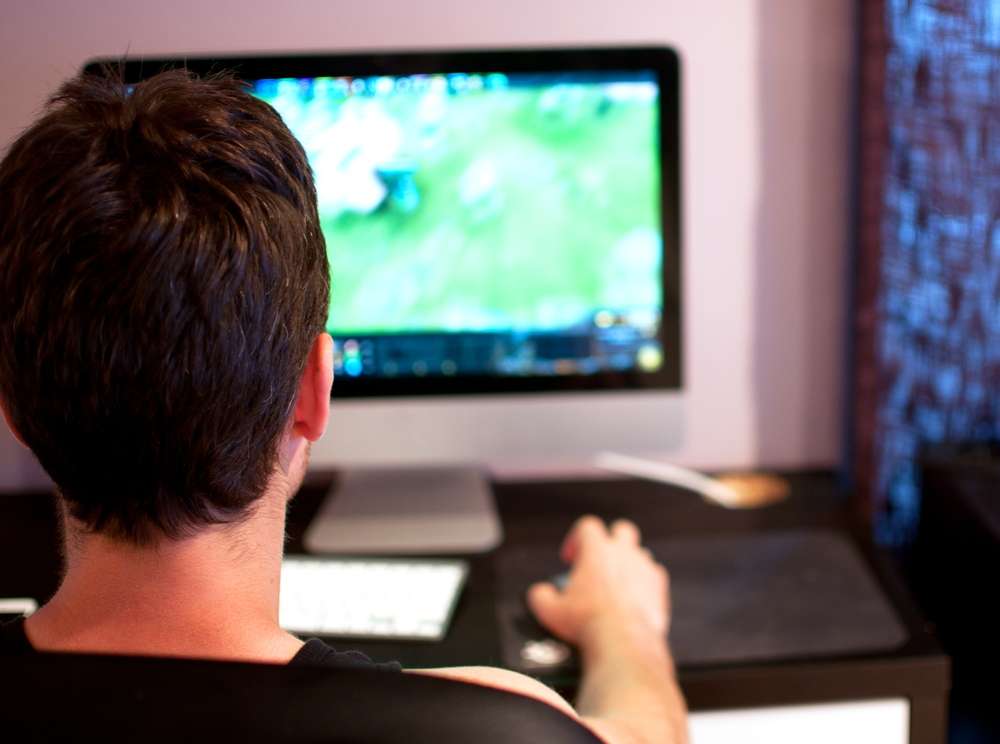A team comprised of faculty and students from Rochester Institute of Technology and St. John Fisher College in New York are developing an innovative computer game for college students suffering from anxiety.
The team is designing a video gaming platform that will engage patients through the application of biofeedback technology, an innovation utilized in the treatment of many mental and physical conditions. It is intended to enhance rather than replace ongoing therapy with an interactive, self-help tool.
Through sensors that detect reactions to varying stimuli, the technology provides users with feedback on physiological functions such as breathing, muscle activity, blood flow, brainwaves and skin temperature. Electrodes are placed on a user’s fingers, head, abdomen, or upper back and give instant information, thereby immediately helping increase patients’ awareness of their biological responses. With the support of psychotherapy that focuses on altering thoughts and emotions, patients can then use the data to change their physical reactions and achieve healthier outcomes.
Students Worried Over Tuition Increases
Facing an uncertain economic future, rising tuition costs, and relentless academic competition, college students are suffering from anxiety and depression at increasing rates in campuses throughout the country. In a 2010 national survey of college freshman conducted by UCLA’s Higher Education Research Institute, only 52% of the respondents reported their emotional health as above average, compared to 64% in 1985. Another national study from 2010 also found female students’ levels of stress and anxiety rising, with 90% reporting feeling overwhelmed in the past 12 months.
Acknowledging the declining state of college students’ mental health, the game developers, lead by Laurence Sugarman, MD, of the Center for Applied Psychophysiology and Self-Regulation in RIT’s College of Health Sciences and Technology, are creating the game to help college students in particular improve their self-regulating skills. The student researchers involved in the project are from the game design and development departments of the two colleges.
Playing the Game
As the interaction begins, players are turned into unique game characters based on their responses to questions assessing their anxieties and repetitive tendencies. Through internal game sensors, users then learn to recognize their physical reactions to stress and to manipulate their characters within different settings. The electrodes will serve as both conduits for biofeedback and as the players’ controllers while simultaneously giving valuable assessment data to the patient’s therapists.
The project represents a unique and entertaining approach to the treatment of anxiety, serving as an additional element of a comprehensive treatment plan. The team noted that it is the first such program to merge several elements of anxiety treatment—assessment, cognitive behavioral therapy and biofeedback—together to promote psychological and physical improvements.
Clinical trials are expected to begin this fall before the group launches the game to the general public. Players’ input about their experiences with the tool will be incorporated in the development stages as well.
Mind Media B.V. donated the NeXus-10 Biofeedback hardware and Biotrace software to the researchers, with earlier funding for the project provided by a research department at RIT. Mind Media B.V. is a European company involved in developing biofeedback technologies for scientists and health care providers.
Sigal Sharf is the author of the Anxiety News column on Anxiety.org. She earned a Master’s Degree in Communications Management from the University of Southern California (USC), where she focused on the dissemination of healthcare information. She also earned dual Bachelor’s degrees in Print Journalism and Political Science at USC. Ms. Sharf has extensive experience in the health services industry, having worked previously at the Los Angeles County Department of Health Services Tobacco Control Program, and the Cancer Information Service of California at the University of California Los Angeles.



